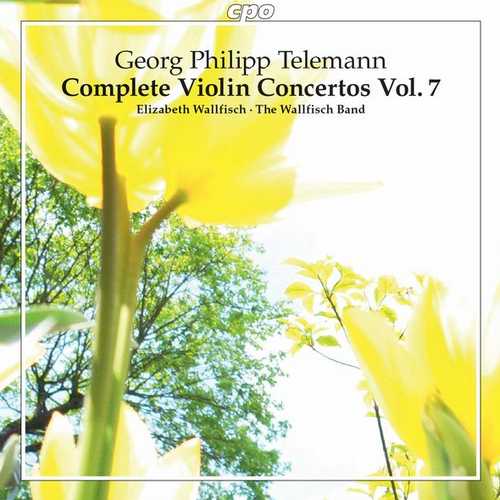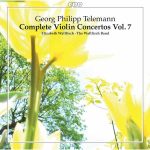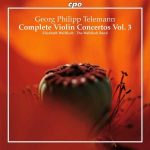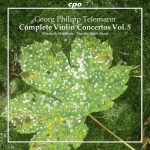
Composer: Georg Philipp Telemann
Performer: Elizabeth Wallfisch, The Wallfisch Band
Format: FLAC (tracks)
Label: CPO
Catalogue: 777881-2
Release: 2021
Size: 324 MB
Recovery: +3%
Scan: yes
Overture-Suite in A Major, TWV 55:A8
01. I. Ouverture
02. II. Passepieds I & II
03. III. Arias I & II
04. IV. Rondeau
05. V. Menuets I & II
06. VI. Fanfare
07. VII. Aria
08. VIII. Gigue
Violin Concerto in G Major, TWV 51:G4
09. I. Vivace
10. II. Largo
11. III. Allegro
Overture-Suite in A Major, TWV 55:A4
12. I. Ouverture
13. II. Divertimento
14. III. Le lusinghe
15. IV. Minuetts I & II
16. V. Passa tempo
17. VI. Tempo di giga
Each of the three violin concertos by Telemann on the seventh volume (but not the last!) of our complete series merits separate consideration in view of its singular musical character and special transmission history. In two cases stylistic descriptions and evaluations are bound up with the question of the authenticity of these compositions. This applies to the Overture Suites TWV 55:A8 and TWV 55:A4. Our expert booklet author Dr. Wolfgang Hirschmann regards the attribution of the first suite to Telemann as entirely justified, even though it perhaps involves a rather early example of this composer’s concerts en ouverture.
The interpretation of this work by The Wallfisch Band is a multifaceted and just as virtuosic rendering that makes a compelling case for this fine one-of-a-kind piece situated between the concerto and suite genres – a work that absolutely has to be included in a complete recording! Although the second overture suite really should be assigned to the ranks of the anonymous, Adolf Hoffmann categorically labeled it as a piece by Telemann in his dissertation on the orchestral suites (1969) and classified it as a »masterpiece« by this composer. The solo violin is highly effectively employed along with a finely developed feeling for tone-color effects, and the movements are ambitiously elaborated in length and form. No matter how plausible the case for Telemann’s authorship may be – these works enable us to participate in a fascinating journey back in time to European music culture around 1720.



